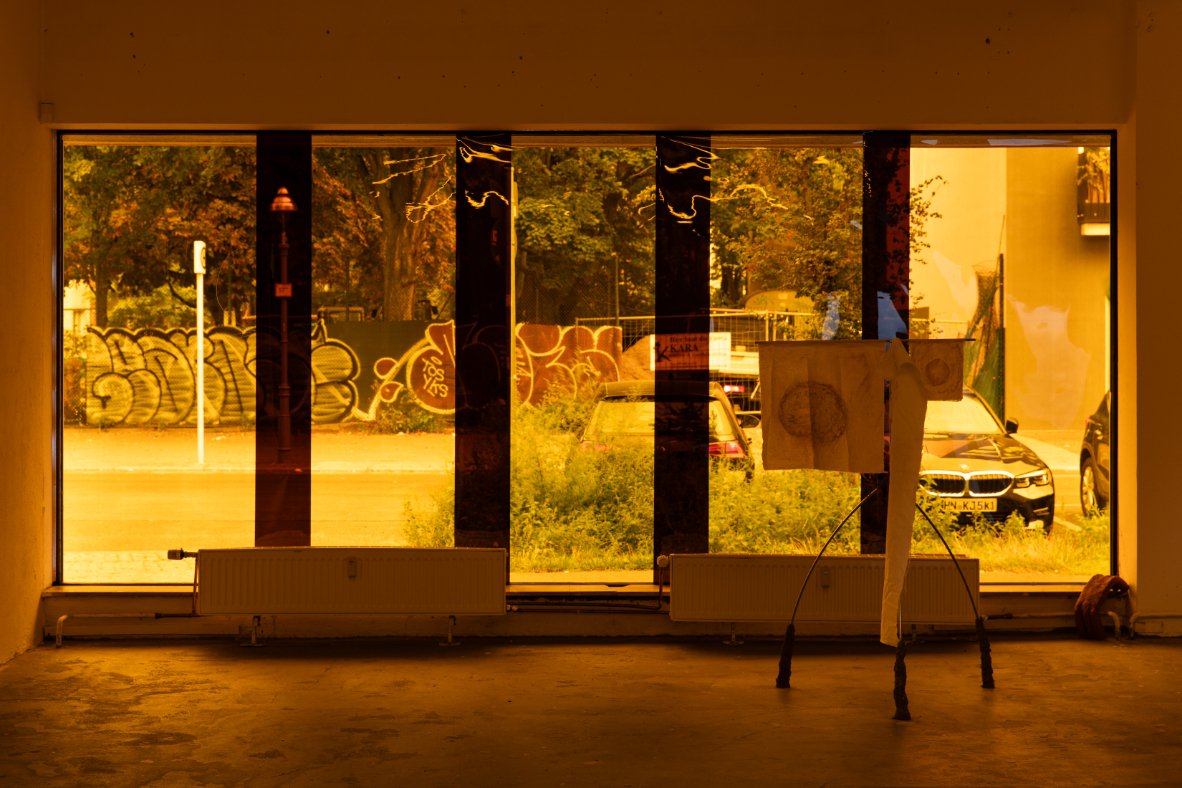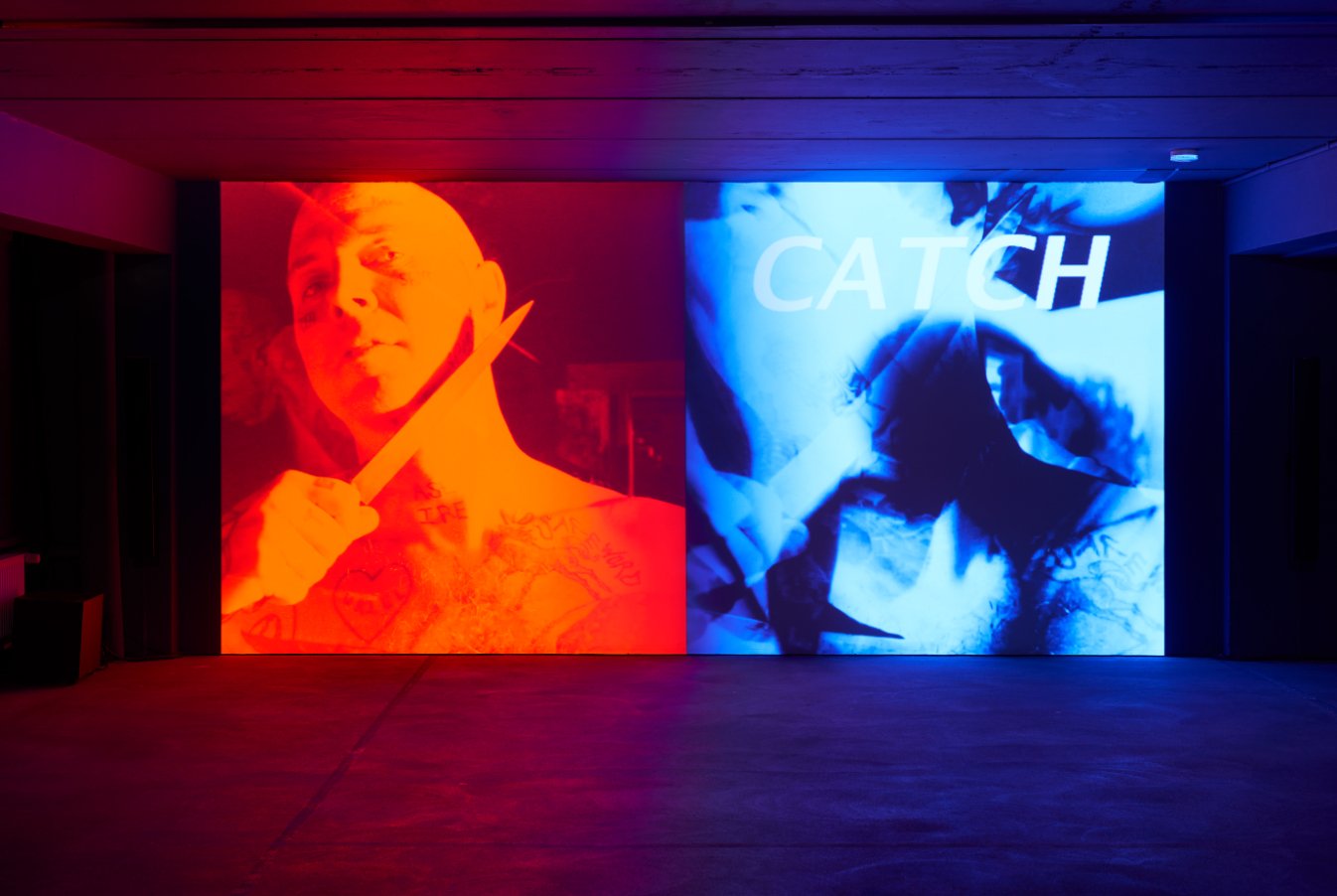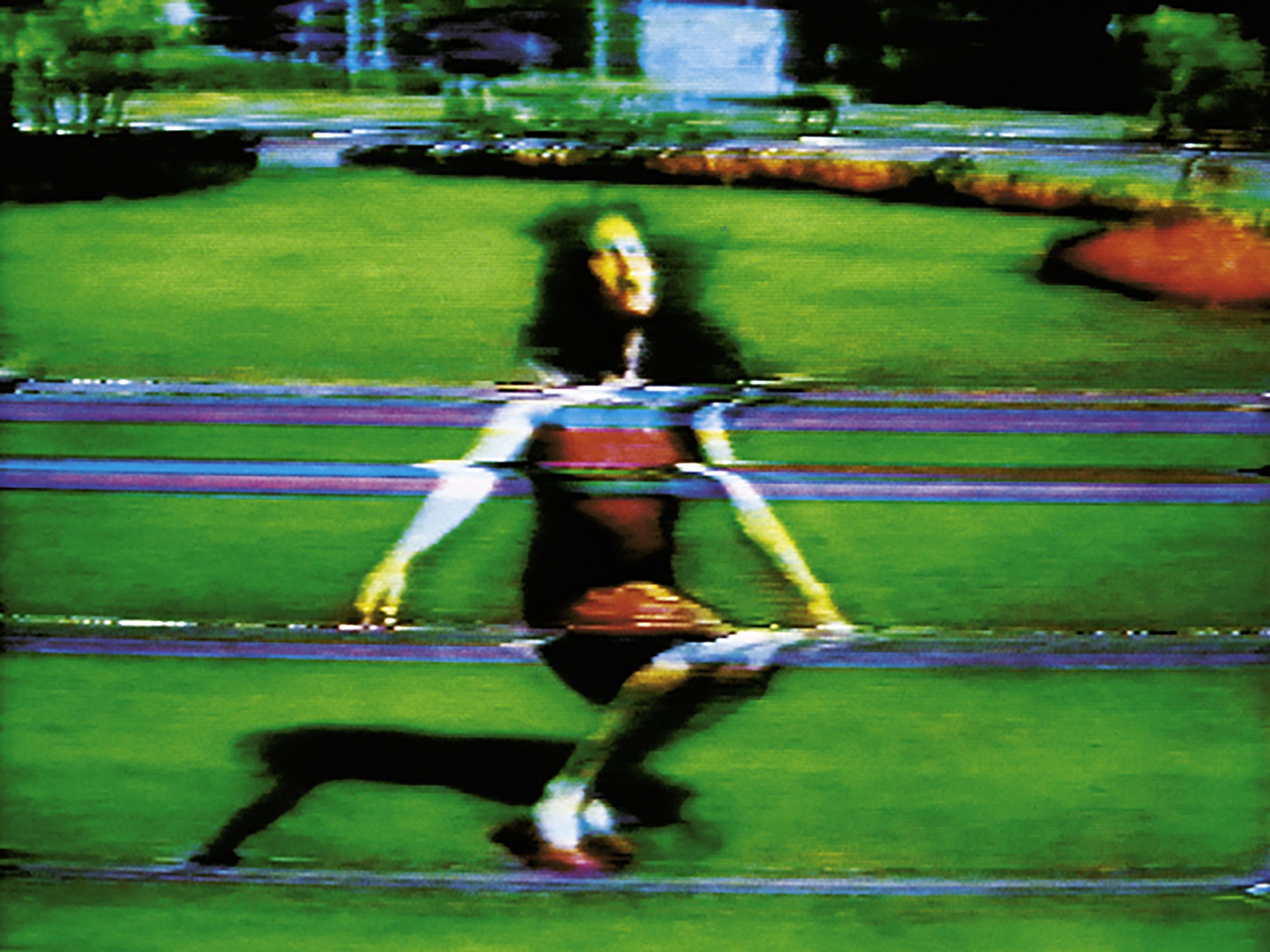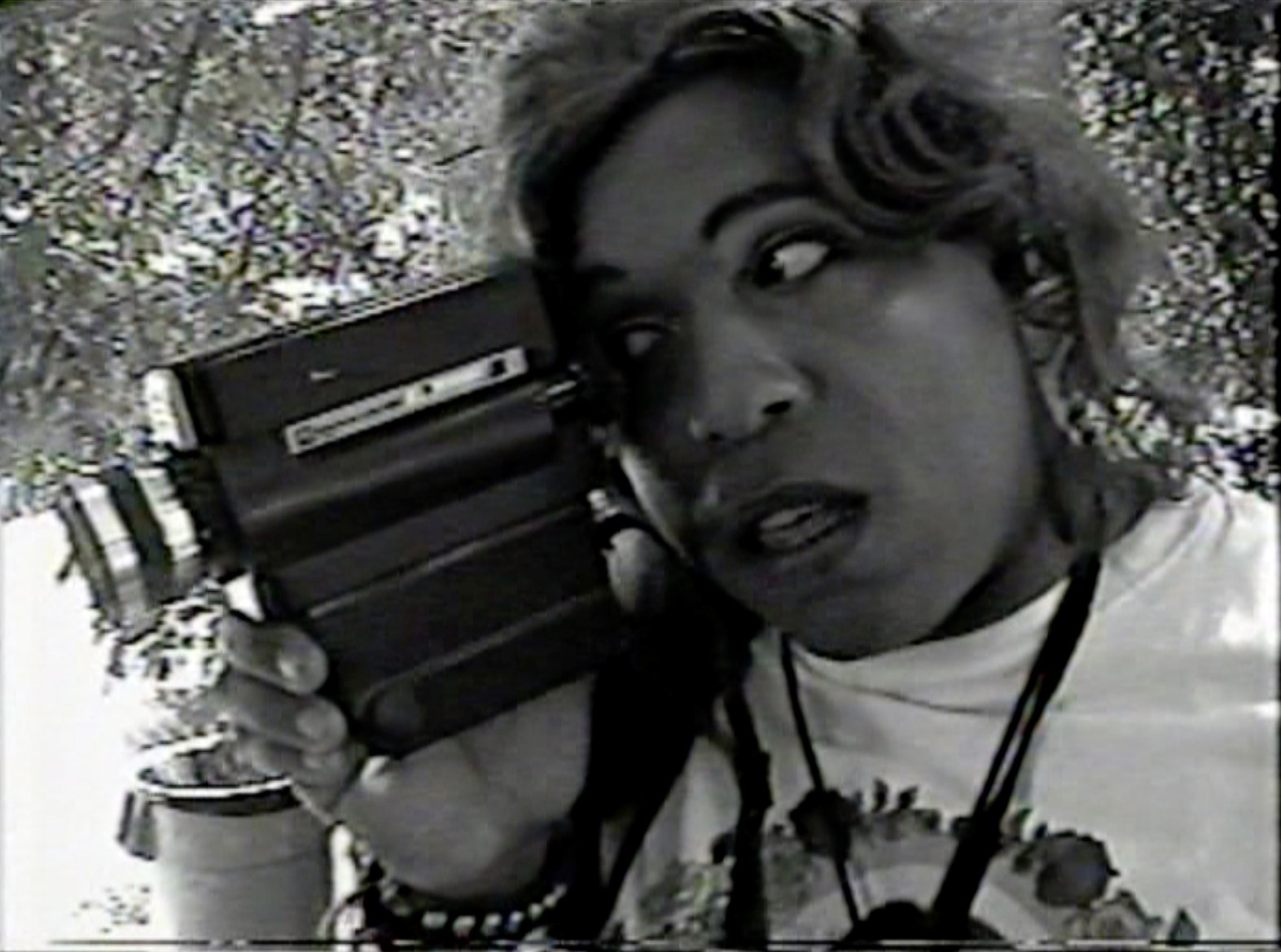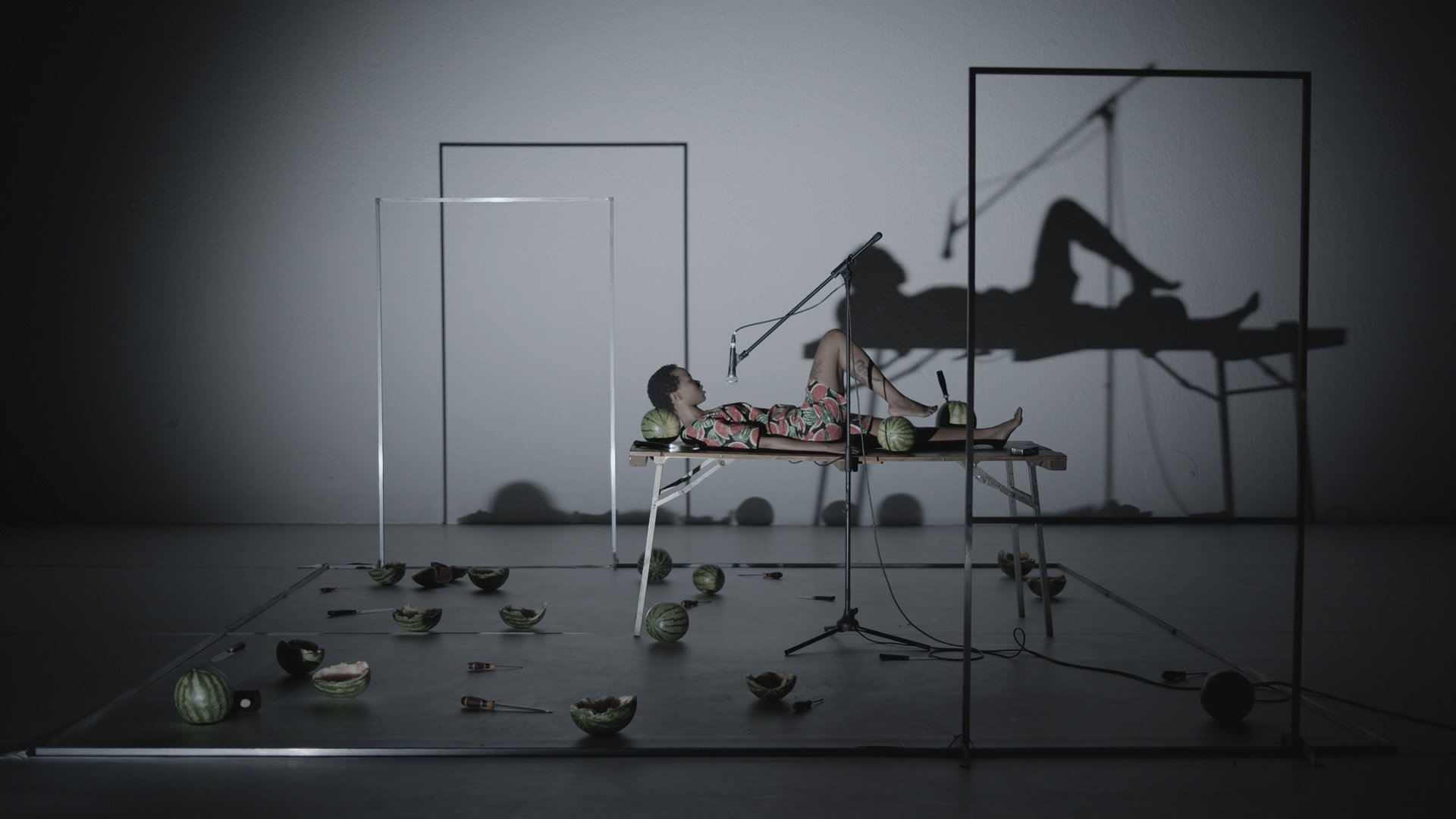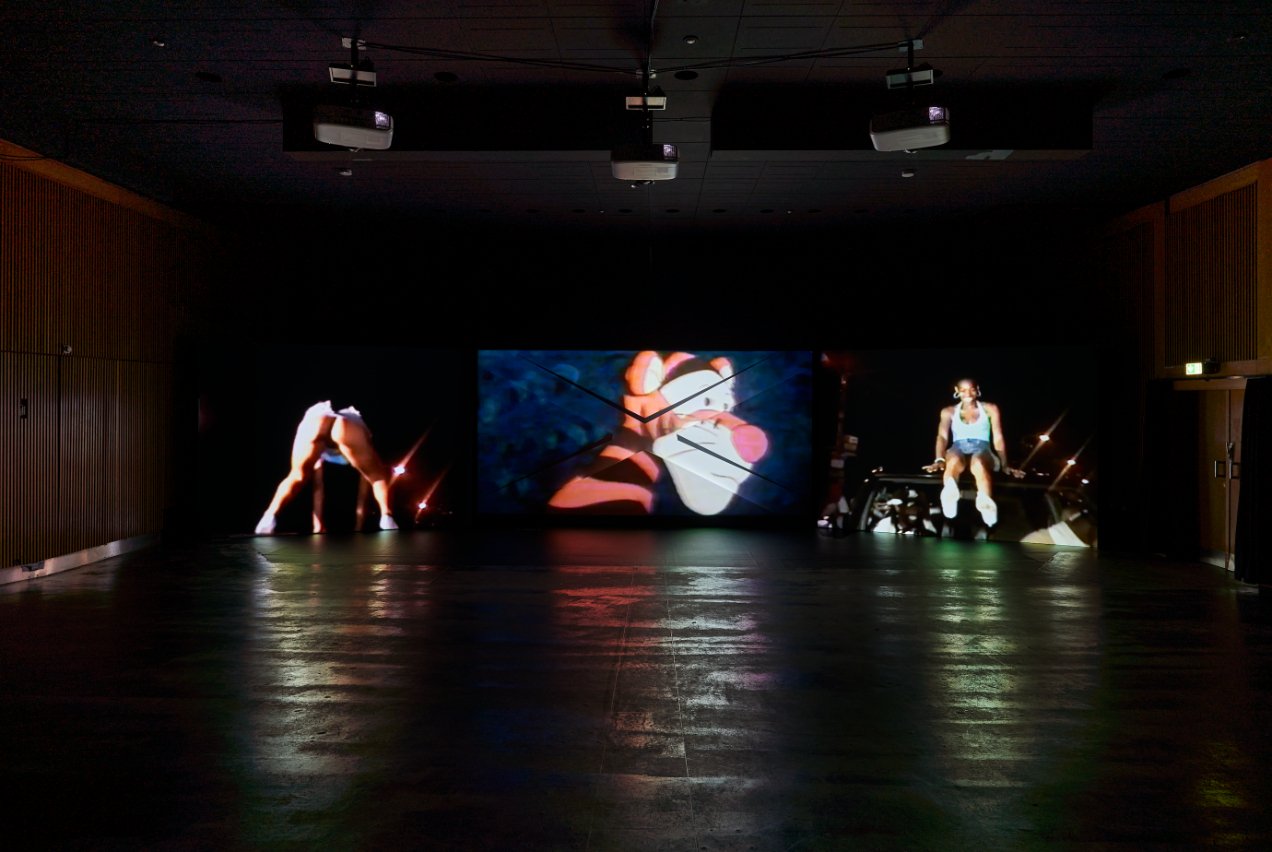A CERTAIN DEATH/THE SWAMP, Jota Momaça’s exhibition at CCA Berlin – Center for Contemporary Arts, was conceived, at first, through extensive conversations around the curious topography of Berlin, said to be entirely built atop drained wetlands. From swamp to city, a teleology of progress, a survival scheme, emerges. Looking at the devastating flash floods of 2021 that affected parts of Belgium, Germany and surrounding countries, Mombaça then conjures up reversal—what of cities that again turn into swamps, a form of dissolution fascists went in terror of (‘Drenare la palude!’, once howled a determined Benito Mussolini) throughout the twentieth century? From Berlin’s locality, we shift our gaze towards a planetary predicament: that of atmospheric phenomena continuously threatening terminal collapse across disparate geographies. until the last morning (2023), a newly commissioned video work, was shot among the mangroves and marshlands of Pará, in the Brazilian Amazon. Covering about 700,000 hectares, these mangroves and marshlands depend on a constant influx of fresh water from rainfall and from the Guajará Bay rivers and streams. To that end, the camera pans to the sky, observing cloud formations, their movements and maneuvers. The ecosystem’s survival depends on this unpredictable choreography—to observe the weather is thus to forecast whether or not a line of continuity can be drawn into the future.
A CERTAIN DEATH/THE SWAMP is on view through December 2nd at CCA Berlin, Kurfürstenstraße 145, 10785 Berlin.



